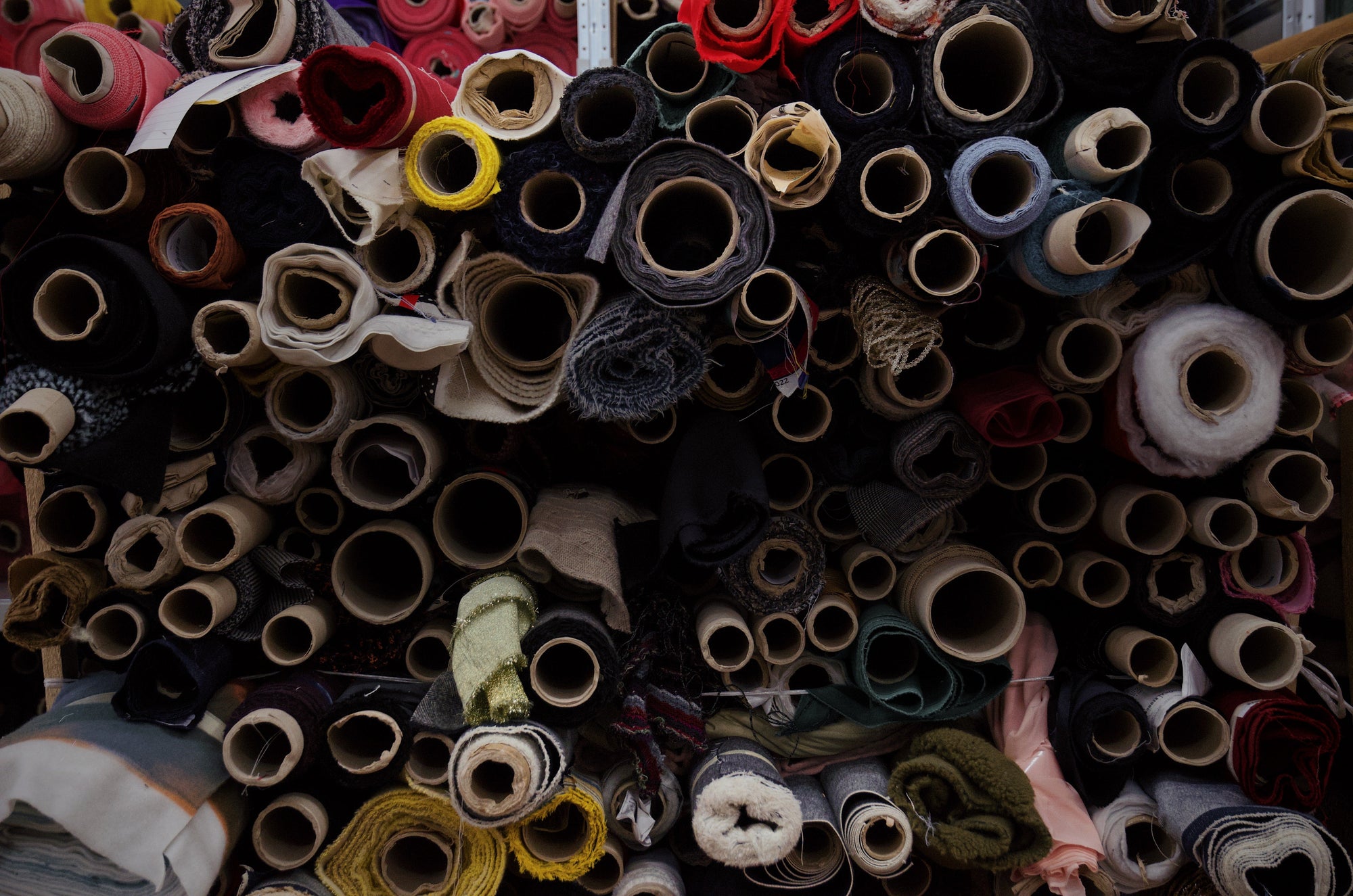At EVA re-source, we have chosen not to adhere to traditional sales. This decision reflects the superior quality of our fabrics and our commitment to responsible production. The materials we carefully choose are not subject to passing trends, but are timeless and embody lasting value that transcends seasonal sales. The discounts we offer throughout the year are meant to support emerging creatives and future designers - so our customers always have access to luxury fabrics at fair and transparent prices. The fashion industry is notorious for its overproduction and resulting waste, contributing significantly to environmental degradation and the output of low-quality items. Choosing deadstock high-range materials is a great step in the right direction.
Our curated selection of fabrics are remnants from top-tier Italian and French fashion brands that would otherwise go to waste. By repurposing these materials, we not only encourage reducing waste but also provide designers with unique and exclusive fabrics. Embrace a responsible approach to creativity; every textile can have a story and a purpose.
EXPLORE OUR COLLECTION, get inspired by our fabrics, and start bringing your ideas to life with EVA re-source. Learn more and order your free samples on our website. Together, we can make a difference, one fabric at a time.



